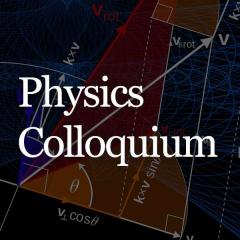Beyond Phosphine on Venus: How do we know if we have found aliens?
Speaker: Dr Laura McKemmish
Affiliation: University of NSW, Sydney
Abstract
In late 2020, astronomers announced the detection of phosphine - a well-known biosignature - on Venus and vigorous debate exploded. Was there life on Venus? Was it a telescope error? Or just sulfur dioxide?
As a computational quantum chemist specializing in producing molecular spectroscopy data for astronomers, I was keenly aware of the lack of suitable spectral data necessary for meaningful remote follow-up studies of initial biosignature detections both on Venus and in future studies of planets within and beyond our solar system. It turned out that astronomers are completely unable to detect any phosphorus-bearing molecules except phosphine and diatomics because they did not know their spectra, meaning the reaction networks that produce and destroy phosphine cannot be remotely probed. Though this data paucity is more acute for phosphorus-bearing molecules (which are often solids), more generally, less than 100 molecules have sufficiently accurate spectral data to allow remote detection in the infrared or visible spectral regions - the only detection method for molecules on exoplanets.
The ability to detect molecules and understand the limitations of these detections, including potential misidentifications, is crucial to the future scientific search for extraterrestrial life. My group takes two complementary and critical approaches. First, very high-accuracy predictions of the spectroscopy of small molecules by combining and experimental results to produce sub-cm-1 accuracy spectral cross-sections. Second, high throughput quantum chemistry methods to determine approximate spectroscopy of thousands of molecules. Together, ongoing method development and new research using both these approaches will provide the spectral data required to support future astrobiology needs.
About Physics colloquium
The Physics Colloquium series hosts a range of speakers from Australia and abroad. The series explores a variety of topics and everyone is welcome to come along. The seminars are open so there is no need to register your attendance.
If you would like to sign up for colloquium announcement emails, you can join the mailing list by sending a blank email to:
- For UQ email addresses: physics-colloquium-others-join@lists.science.uq.edu.au
- For non-UQ email addresses: physics-announce-external-join@lists.science.uq.edu.au
(Note: if you receive physics-all emails, you should already receive these and don't need to sign up again).
Venue
Room: 222 (and via Zoom:
https://uqz.zoom.us/j/82590260715)

